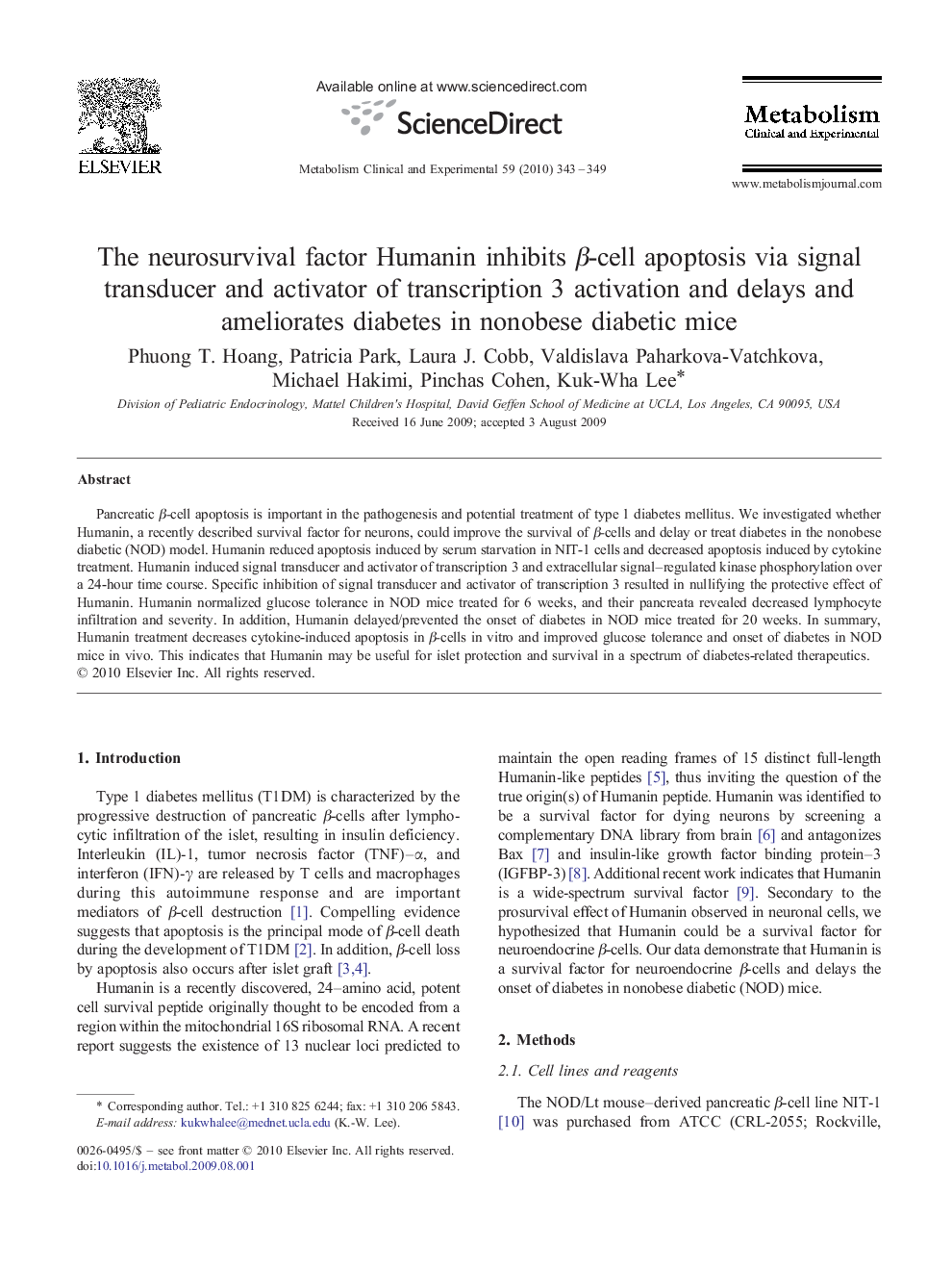| کد مقاله | کد نشریه | سال انتشار | مقاله انگلیسی | نسخه تمام متن |
|---|---|---|---|---|
| 2807028 | 1157143 | 2010 | 7 صفحه PDF | دانلود رایگان |

Pancreatic β-cell apoptosis is important in the pathogenesis and potential treatment of type 1 diabetes mellitus. We investigated whether Humanin, a recently described survival factor for neurons, could improve the survival of β-cells and delay or treat diabetes in the nonobese diabetic (NOD) model. Humanin reduced apoptosis induced by serum starvation in NIT-1 cells and decreased apoptosis induced by cytokine treatment. Humanin induced signal transducer and activator of transcription 3 and extracellular signal–regulated kinase phosphorylation over a 24-hour time course. Specific inhibition of signal transducer and activator of transcription 3 resulted in nullifying the protective effect of Humanin. Humanin normalized glucose tolerance in NOD mice treated for 6 weeks, and their pancreata revealed decreased lymphocyte infiltration and severity. In addition, Humanin delayed/prevented the onset of diabetes in NOD mice treated for 20 weeks. In summary, Humanin treatment decreases cytokine-induced apoptosis in β-cells in vitro and improved glucose tolerance and onset of diabetes in NOD mice in vivo. This indicates that Humanin may be useful for islet protection and survival in a spectrum of diabetes-related therapeutics.
Journal: Metabolism - Volume 59, Issue 3, March 2010, Pages 343–349